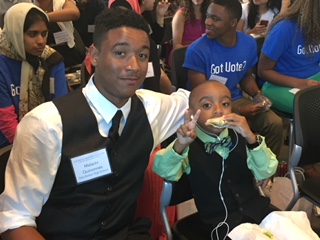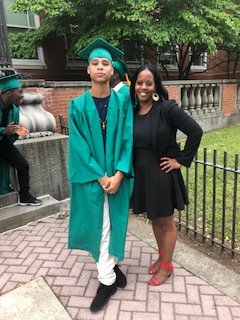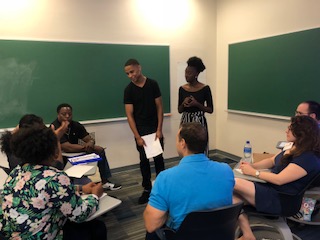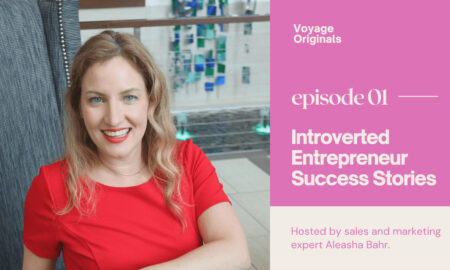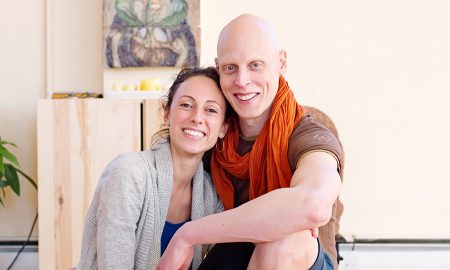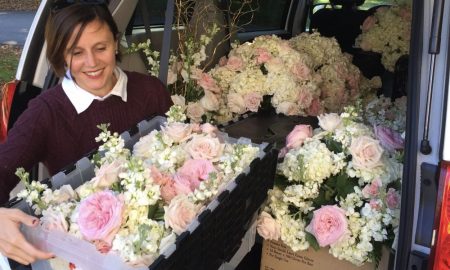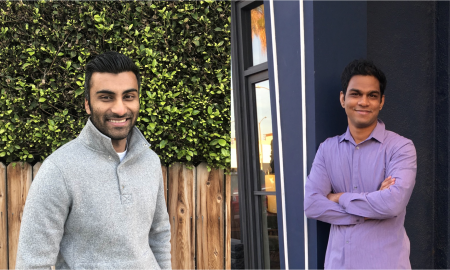

Today we’d like to introduce you to Janelle Ridley.
So, before we jump into specific questions about the business, why don’t you give us some details about you and your story.
I attribute motherhood as my primary brand. I am the proud mother of an 8-year old son, James, and a 20-year-old adopted daughter, Nancy, who was also a former student. Aside from motherhood, I carry the mantle of juvenile justice with hope and pride. I have worked my entire career to create hope and self-value to young people that most of society has written off. I am driven to do the work because of the faith I have in young people. I believe there is a purpose for every last person created and if people are fortunate to have their life purpose aligned with the work they do; it is an amazing blessing. I feel fortunate to be one of the many who acknowledges and embrace her purpose unapologetically for a cause greater than herself.
As a woman of color who grew up in Winthrop MA since the tender age of 5, I was fortunate to live in an environment and be part of a community where I did not have to worry about much. My younger brother and I were raised by our mother, Theresa, a resilient and independent woman, who immigrated to the U.S. and toiled diligently with grace and humility to provide us with an opportunity to attain the American Dream. Although we were one of a few families of colors that lived-in Winthrop, I had access to resources and opportunities that my Black and Brown peers were deprived of in neighboring communities. It wasn’t until I graduated from college and began working at the Department of Children and Families (DCF), that I realized just how blessed I was. DCF played an integral role in shaping my identity and purpose which led to my trajectory of a fight for young lives.
Initially, I spent many years believing it was my responsibility to “save” our young people, but it wasn’t until I began teaching for the Boston Public Schools and attending Calvary Christian Church did my faith begin to tell me and show me otherwise. I was not put here to save anyone’s life, but I am here to ensure each young person that comes across my path know that they have a hope and a future, and there is a purpose in their life and story. I’ve never walked a mile in the life of the young people I work with, nor have I experienced anything remotely close to what they have been subjected to. However, I do know what it is like to question yourself and feel devalued as a person because others have made it a point to typecast you, question your competence, and push you aside in order for them to feel significant. It is something I have gone through for as long as I can remember, and it is unfortunate to say, but something I am continuing to experience presently. I am a mother of color, raising two young people of color to whom I have to work extra hard at reminding them that their value is not dictated by what this world says, but by who they are, whom they belong to, and what they say of themselves. The young people I work with do not have that luxury of someone feeding life into them and they do not know to whom they belong.
Unfortunately, they internalize society’s perception of them, even if they will never admit it out loud. Faith tells me that “life and death is in the power of the tongue” and never have I doubted that statement to be true. As the founder and former advisor to the first known High School Chapter of the NAACP (2013), watching my young people speak their truth led to an awakening of how needed their presence is in the rooms, and spaces where decisions are being made that impact their lives. Listening to the needs of the young people led to creating a curriculum in 2014 that provided a space where our intelligent students were able to connect, share their story and connect it to history. This led to my prognosis that what my students all had in common and we’re going through as “street trauma”. In 2015, the students met with the District and asked for “street trauma” to be a class within their high school, which then landed me at the district to expand my work. In conjunction with expanding my work, the knowledge of my passion for young people and drive to empower our students, I was asked to meet with the Department of Youth Services and learn what is happening to our incarcerated youth. Learning that transition was difficult for this population, and seeing that change needed to happen and that these were young people that had given up on themselves, resulted in my current position as the District Coordinator for System-Involved Youth.
Has it been a smooth road?
Working in a predominantly, white arena does prove to have its challenges at times. However, in my current position working closely with the Department of Youth Services, the individuals I work with have been supportive. Boston as a whole does have its moments when entitlement and egos flare, but for the most part, I have been pretty fortunate to have some incredibly strong allies. Challenges will always present itself, because in anything that you do that is meant to benefit the lives of black and brown youth and fighting for the voiceless, you will always have obstacles. My only advice is that if you understand what you were meant to do, it will help you continue to push through. Former President Barack Obama recently quoted at Senator John McCain’s funeral one of Hemingway’s passages that had always resonated with me since high school, “Today is only one day in all that will ever be. But what will happen in all the other days that ever come can depend on what you do today”. That sits with me each day with this work, that the future of these young people, depends on what I and you do today.
We’d love to hear more about your work.
One area of focus for me has been to examine how youth detained in the Massachusetts Department of Youth Services (DYS) transition back into Boston Public Schools. Most youth who are detained by the courts experience being off-track academically, which we know contributes to the school to prison pipeline. They are often behind in their educational attainment and even short periods of detention may result in further disconnection of youth from their school, community and then exacerbates opportunity gaps. I have identified a connection and strategic transition as a priority in order for change to happen and to begin transforming the thinking of these young people.
During this Summer 2018, I launched Transition H.O.P.E., a pilot program on one unit at the Massachusetts Department of Youth Services (DYS) based upon a year of research. Transition H.O.P.E is designed to reverse the school-to-prison pipeline and ensure all youth have access to educational equity, by holding High Expectations for each and every young person; providing Opportunities that are realistic and within their perspective; helping the youth envision Pathways to Success by taking ownership of decisions for desired long-term outcomes; and providing Encouragement to help youth acknowledge that success is theirs to claim and define irrespective of the past. The plan is to expand Transition H.O.P.E. in the school year of 2018/19 to additional units within DYS serving youth assigned to the Boston Public Schools.
Transition H.O.P.E. relies on strategic community partnerships, which is providing tutors to engage the youth in college-level academic discourse and expose them to pathways beyond high school. The tutors will also work with youth to build higher order thinking skills in order for them to see beyond the limitations placed upon them. The program also provides reputable men who serve in the role of a mentor assigned to the young people, who work with them to design a roadmap. The roadmap is created by using the purposed plan the young people create which identifies the goals they set for themselves and hope to achieve. Transition HOPE also allows these young people to be seen as the experts in how systems impact young people, the changes that need to occur, and where the adults can make a change. Transition HOPE sees them as the “seeds” (systems educated expert disrupters) to dismantling the school to prison pipeline. They will receive “student development skills to be effective in facilitating conversations, leading discussions, providing expertise in research, and strengthening their public speaking skills in order to work with academic professionals and bring lived experience into college courses. This is not limited to the classroom alone, but also providing much-needed conversation in a professional development workshop for teachers and leaders within the education realm.
We’re interested to hear your thoughts on female leadership – in particular, what do you feel are the biggest barriers or obstacles?
One of the biggest barriers for female leadership today is that it continues to be difficult for women to receive the same level of respect as their male colleagues. As a young female, just, personally speaking, it is even harder to be taken seriously. If you are strong and firm, you are considered an angry black woman, whereas, a black male, would be given “props” for standing his ground. If you are nice and kind, you are taken advantage of, as well as stepped on because you are seen as weak. Depending on the level of education you have, it can either help as to your credibility or be seen as a threat to those around you. There are times often, when I question whether those who work with me, and are meant to support the work, are for me, or against me. With so many, both male and female, vying for attention to be known and seen to make a name for themselves it becomes incredibly difficult at times to keep patient, give grace and persevere.
The one encouragement I will give is this, not everyone is like that. There will be a few true allies who believe in you, who will commend you for the work you do and will give recognition to your efforts. However, with that being said, if you “run the race, that was marked out for you” none of those elements I mentioned, or barriers will prevent you from getting where you need to be, and doing the work that is significant. I am reminded that “what is for me, will be there”, that no one can take away your blessings, or stop your purpose unless you allow it. That at the end of the day, if God is for me, who can be against me. I am grateful that we have come a long way in society, but we are still not where we need to be. I am encouraged by the next generation of women coming up, and that they will continue to make the significant strides that those before me have made. My generation and I, who are not quite the millennials, but a few years’ shy of that, will continue to pave the ways for those to come.
Contact Info:
- Address: 2300 Washington St, Roxbury, MA
- Phone: 617-888-4372
- Email: jridley@bostonpublicschools.org
Getting in touch: BostonVoyager is built on recommendations from the community; it’s how we uncover hidden gems, so if you know someone who deserves recognition please let us know here.





